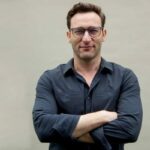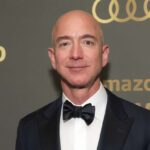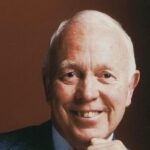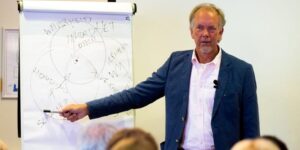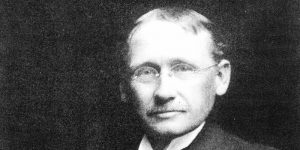Mark Zuckerberg biography and net worth
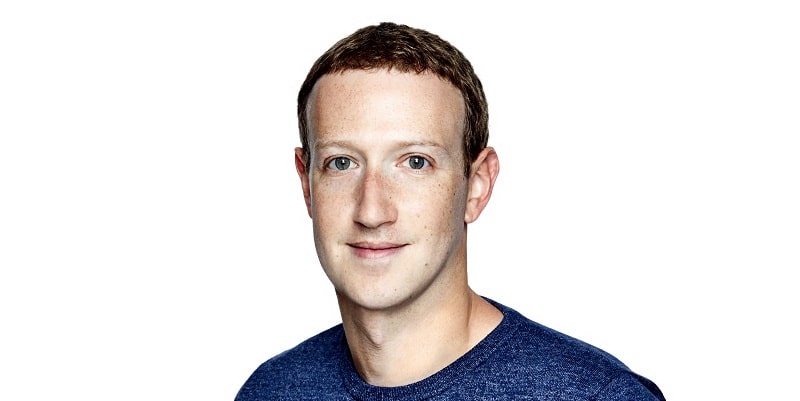
Mark Zuckerberg (Mark Elliot Zuckerberg) is an American computer programmer and entrepreneur, born on May 14, 1984, in White Plains, New York. He is best known as the co-founder, chairman, and CEO of Facebook, the world’s largest social networking platform. Zuckerberg started Facebook in his Harvard University dormitory room in 2004, and the company has since grown into a global phenomenon with over 2.8 billion monthly active users.
As a key figure in the tech industry, Zuckerberg is closely associated with Silicon Valley, the birthplace of many of the world’s most innovative tech companies. His leadership has helped Facebook become a dominant force in the digital landscape, with an ever-expanding suite of products and services that include Instagram, WhatsApp, and Oculus VR.
Zuckerberg is t also a renowned philanthropist, having pledged to donate 99% of his Facebook shares to the Chan Zuckerberg Initiative, a charitable organization he founded with his wife, Priscilla Chan. As of 2023, Mark Zuckerberg’s net worth is estimated to be more than $150 billion, making him one of the wealthiest people in the world.
In recent years, Zuckerberg announced several initiatives aimed at addressing social issues, including combating fake news and promoting civic engagement. He has also faced scrutiny over Facebook’s handling of user data and the platform’s role in disseminating misinformation. Nevertheless, Zuckerberg’s impact on the tech industry and global society cannot be denied, and his entrepreneurial spirit continues to inspire aspiring tech entrepreneurs around the world.
Biography of Mark Zuckerberg
Youth
Mark Zuckerberg was born and raised in White Plains, a city in Westchester in New York. He grew up in an upper-class family as both his parents were highly educated. His mother, Karen, worked as a psychiatrist before she got pregnant. Since she became a mother, she mainly took care of the children.
Mark Zuckerberg’s father, Edward, was an entrepreneur. He maintained a dental clinic at the family’s residency. It was a comfortable home where both parents were always around Mark Zuckerberg, his brother Randi, and his sisters Donna and Arielle.
Computer programming was a hobby for Mark Zuckerberg. When he turned six, his father taught him Atari BASIC Programming, an Atari Video Computer System that teaches simple computer programming by using BASIC (Beginners’ All-purpose Symbolic Instruction Code).
As Mark Zuckerberg became more interested in programming, he became very proficient. Within four to six years, Mark created ZuckNet, a chat network for his father’s dental clinic and the rest of his family. Thanks to ZuckNet, the clinic’s hygienists and dentists could now share patient information.
Mark’s family thought that he could develop much further, and hence hired a software developer teacher David Newman. During this high school period, he enhanced his programming skills significantly.
Education of Mark Zuckerberg
Mark Zuckerberg first attended Ardsley high school, but he quickly relocated to Phillip Exeter Academy. This highly selective boarding school provides education based on the Harkness education system, an approach with minimal teacher involvement.
His educational performance in science and math exceeded expectations. These were subjects in which Mark Zuckerberg always excelled. Based on his skills and preferences, he decided that he would study computer science and sociology at Harvard University.
By the time he attended Harvard, Mark was already well familiarized with programming. Within two years at the university, he had built several programs. He quickly became one of the most skilled computer programmers at Harvard as he has built CourseMatch, a platform that helped students to find the right course at university.
People also could see who signed up for each course. In 2003, Mark Zuckerberg additionally co-created FaceMash. FaceMash was an initiative to rank university students based on their facial looks.
The concept did not last long as the pictures were not retrieved with the individuals’ consent visualized on the photos. After taking down FaceMash, Mark Zuckerberg created Facebook with Dustin Moskovitz, Chris Hughes, and Eduardo Saverin.
During his time at Harvard, Mark Zuckerberg was dating Priscilla Chan. They remained a couple and later married. Today, they have two daughters, Max and August. They are a hard-working couple who try not to spoil their children.
Finally, Mark Zuckerberg enjoys hunting wild boars with a bow and arrow in his spare time.
Mark is currently actively involved in philanthropic activities as he signed the Giving Pledge, a commitment signed by the wealthiest people to give away most of their wealth. He also made numerous donations to schools and businesses such as the Newark Public Schools.
The History and development of Facebook
In 2004, TheFacebook (now known as Facebook) was created to connect Harvard students. Marck Zuckerberg was only 19 at the time. Facebook’s main goal was to attract users that would create a personal profile in which they can share moments of their life with other users, including communicating with them.
It was a new concept in comparison with online directories at that time. These directories were limited to a separate group of students. In contrast, Mark Zuckerberg created Facebook to connect every student at Harvard University. Within one month, almost 50 percent of the university students had signed up for the platform.
It later appeared that Facebook’s idea was derived from an idea created by other students, Cameron Winklevoss, Tyler Winklevoss, and Divya Narendra. The three argued that they have worked on the HarvardConnection (currently known as ConnectU), also a social networking platform. However, Mark Zuckerberg quitted and created his own concept. The tree sued Mark, and in 2008, the parties came to a settlement of approximately $65 million.
Especially short since Facebook’s establishment, Mark Zuckerberg and his friends maintained the platform from their bedroom at the university. As Facebook’s popularity increased significantly among Harvard students, Mark Zuckerberg made the platform available to students of other universities, including Stanford University, Yale University, and Columbia University. Soon after, numerous other universities and colleges got access to Facebook.
By mid-2004, Facebook reached its 1 million user milestone. At this point, Mark became a university drop out. As he put all his efforts into maintaining the platform and improve its user base back then, Mark decided to relocate the business to Palo Alto, California. Their new business location was a small house where Zuckerberg and his friend operated Facebook.
Shortly after the relocation, Facebook became familiar with investors. As its user base continually grew, Peter Thiel, a venture capitalist who co-founded PayPal, became their first investor. He provided Facebook with $500.000 in exchange for a 10.2% stake and becoming a board member.
Facebook’s only condition was to reach its 1.5 million user base milestone by the end of the year. By 2005, Facebook won more popularity among potential users and investors. Both Accel Partners, a venture capital firm, and venture capitalist Jim Breyer invested in Facebook.
Mark Zuckerberg had by this time taken incremental steps to increase its user base. As it first started by providing access to schools in the United States, Facebook now additionally offered access to universities and colleges in the United Kingdom, Australia, New Zealand, and Mexico.
As Facebook popularized and the company’s enormous potential was visible, Facebook became accessible to everyone around the world with a valid email address and a minimum age of 13 years as of 2006. The growth was so tremendous that he decided to serve the company as a chief executive officer instead of a programmer.
Because of this decision, Mark Zuckerberg had more time to determine the company’s strategic direction. As the user base increased to around 12 million users at the end of 2006, the platform became attractive for additional services to improve its attractiveness for new users.
One of the first extra implementations was the marketplace offering that enabled the selling of products and services among individuals. Mark Zuckerberg also made sure that business profiles could be created. The benefit for businesses that use Facebook is access to millions of users that can be reached through advertisement campaigns. Facebook made sure that advertisement became affordable for small and medium companies.
Many other features became available such as liking posts and the ability to tag people in photos. By 2010, Facebook had 500 million users, and its worth was valued at $41 billion. With the capital accumulated in the following years, Mark Zuckerberg acquired numerous companies to strengthen its market position, including Parakey, Instagram, ConnectU, FriendFeed, Octazen, Onavo, and Divvyshot.
His acquisition portfolio aimed to get the best employees, learn about apps and related technologies, improve its platform and offer, and improve its revenue model. Tree years later, Facebook was listed as a Fortune 500 company.
Obstacles and challenges
In 2008, Mark Zuckerberg was already a household name as the co-founder and CEO of Facebook, the social networking giant he started while attending Harvard University. With Facebook’s user base growing rapidly, Zuckerberg became one of the most influential figures in the tech industry.
Over the next decade, Zuckerberg continued to lead Facebook’s expansion, overseeing the company’s IPO in 2012, which raised over $16 billion and made Facebook one of the most valuable companies in the world. He also oversaw the acquisitions of popular services like Instagram and WhatsApp, expanding Facebook’s reach and influence even further.
However, as Facebook grew, it faced increasing scrutiny over issues like data privacy, fake news, and election interference. In response, Zuckerberg announced a major shift in the company’s focus in 2019, stating that Facebook would prioritize privacy and user control over data. In 2021, Facebook rebranded as Meta, with Zuckerberg declaring that the company’s new mission was to build the “metaverse,” a new virtual reality space that would allow users to interact with each other and digital objects in immersive new ways.
Zuckerberg has also been recognized for his philanthropic work, having pledged to donate most of his wealth to charity. He and his wife, Priscilla Chan, founded the Chan Zuckerberg Initiative, a philanthropic organization aimed at advancing human potential and promoting equal opportunity.
Facebook has around 2.96 billion users as of late 2022, and an annual turnover of approximately $117 billion. Despite Facebook’s major success, it did not come easy. Mark Zuckerberg and his company had to overcome several challenges that influenced company growth.
As its goal is to connect people and share moments of their life to make the world more transparent, some groups have misused the platform for other purposes. For example, Facebook needs to deal with fake accounts that spread misinformation to influence the public negatively. Facebook’s live function, a function that lets an individual stream a video live, has been used to record inappropriate, insulting, dangerous, and violent content.
Since its establishment, Facebook had experienced continual user base growth before it experienced its first decline in 2018. The company is today considered the largest social media platform in the world. For the third time, Facebook won the Crunchie’s ‘Best Overall Startup or Product award.’ It additionally won the Webby’s ‘People’s Voice Award’ in 2008, and Facebook listed the 2007 PC Magazine’s ‘Top 100 classic websites.’
Mark Zuckerberg and his employees have made life easier for many individuals. It has helped people to find jobs, find new people to meet, find old friends, and stay connected with people from abroad without a phone number.
Mark Zuckerberg quotes
- “Don’t discount yourself, no matter what you’re doing. Everyone has a unique perspective that they can bring to the world.”
- “The biggest risk is not taking any risk.”
- “I think a simple rule of business is, if you do the things that are easier first, then you can actually make a lot of progress.”
- “Move fast, take risks, it’s okay to try big things you’re better off trying something and having it not work and learning from that than having not done anything at all.”
- “People think innovation is just having a good idea but a lot of it is just moving quickly and trying a lot of things.”
- “The trick isn’t adding stuff, it’s taking away.”
- “You grow more when you get more people’s perspective.”
- “By giving people the power to share, we’re making the world more transparent.”
- “In a world that’s changing so quickly, you’re guaranteed to fail if you don’t take any risks.”
- “I generally think if you do good things for people in the world, that comes back and you benefit from it over time.”
- “Give everyone the power to share anything with anyone.”
- “Nothing influences people more than a recommendation from a trusted friend.”
- “Instead of building walls, we can help build bridges.”
- “The question I ask myself like almost every day is, ‘Am I doing the most important thing I could be doing?”
- “Building a mission and building a business go hand-in-hand.”
- “I’m here to build something for the long-term. Anything else is a distraction.”
- “Move fast and break things. Unless you are breaking stuff, you are not moving fast enough.”
- “People don’t care about what you say, they care about what you build.”
- “The question isn’t ‘What do we want to know about people?’, It’s, ‘What do people want to tell about themselves?'”
- “In a world that’s changing really quickly, the only strategy that is guaranteed to fail is not adapting.”
- “Entrepreneurship is about creating change, not just companies.”
- “The thing that we are trying to do at Facebook, is just help people connect and communicate more efficiently.”
- “The Hacker Way is an approach to building that involves continuous improvement and iteration. Hackers believe that something can always be better, and that nothing is ever complete.”
- “I think a simple rule of business is, if you do the things that are easier first, then you can actually make a lot of progress.”
Books and publications by Mark Zuckerberg et al.
- 2020. Mark Zuckerberg: How data can aid the fight against covid-19.
- 2016. The technology behind Aquila.
- 2013. Mark Zuckerberg on Facebook Home, Money, and the Future of Communication. Wired, April.
- 2009. A new LP algorithm for precedence constrained production scheduling. Optimization Online, 1-33.
- 2004. A Set Theoretic Approach to Lifting Procedures for O, 1 Integer Programming. Doctoral dissertation, Columbia University.
How to cite this article:
Zeeman, A. (2020). Mark Zuckerberg. Retrieved [insert date] from Toolshero: https://www.toolshero.com/toolsheroes/mark-zuckerberg/
Originally published on: 12/16/2020 | Last update: 05/29/2023
Add a link to this page on your website:
<a href=”https://www.toolshero.com/toolsheroes/mark-zuckerberg/”>Toolshero: Mark Zuckerberg</a>


